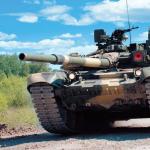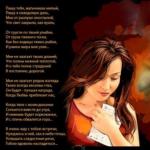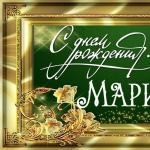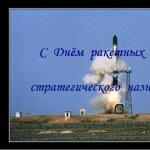A life without holidays can turn into a gray mass of monotonous everyday life that can only cause melancholy and depression. We need the holidays as a kind of outlet that allows us not only to remember and honor this or that event, but also to gain positive emotions and strength.
For some reason, it is generally accepted that in our country there are too many such significant days, and their number prevents Russians from focusing not on rest, but on labor achievements. In fact, this statement does not correspond to reality, since there are enough countries in the world that are able to celebrate all kinds of events more broadly and pompously. These leaders include the inhabitants of Egypt, China, India, Indonesia, Thailand, Morocco.
The Russians are far from the first on this list, although they could compete with the leaders. After all, with us, any occasion, even the most insignificant, can cause great fun. Our calendars are full of holidays, not only domestic ones, but also borrowed ones. Among them you can find the International Pirate Day, and the Japanese holiday of the naked, and the zombie march, and the world left-handed day.
Such a variety of significant events can turn the head of any lover to have a good rest and have fun. And all this is undoubtedly great, but nevertheless it needs some sort of systematization, ordering, separation of the main from the secondary and not the most necessary. Such a regulator, which does not cause mass rejection, is the state, which has the right to determine what is most significant for it and its benefits. It is it who is empowered not only to establish holidays, but also to protect their identity, individuality and historical justice through them.
It is very important to remember here that the semantic load carried by this or that event associated with the officially established holiday performs not only a unifying, but also an educational function. Public holidays are designed to preserve the history of the country in order to pass it on intact to future generations. An important feature of these holidays, established by the executive branch, is their nationwide recognition. The basis for such a deep reverence for established traditions is based on historical, religious, military and professional achievements that have radically influenced the fate of the country.
All these categories of holidays reflect the most important milestones in Russian history, and they are all closely related. Religious holidays are associated not only with the history and culture of Russia, but also with such important concepts as honor, courage, patriotism, self-sacrifice, mutual assistance and mercy.
 If we talk about professional holidays, then they are a sign of recognition of the merits of outstanding workers in all spheres of activity, who fully devoted themselves to their favorite work.
If we talk about professional holidays, then they are a sign of recognition of the merits of outstanding workers in all spheres of activity, who fully devoted themselves to their favorite work.
A lot of dates in our calendar are dedicated to memorable events associated with key historical events in the life of the people and the state. A special place here is occupied by the victory days of Russia, established to commemorate the great victories of Russian soldiers who defended their homeland from numerous enemies and ill-wishers.
The Labor Code of the Russian Federation speaks of eight public holidays and 12 days off associated with them. In addition to these holidays, which are undoubtedly loved and expected by everyone, there are a large number of solemn days and events dedicated to workers in agriculture, medicine, various industries, government bodies, the media, and artists. Each day of our calendar has its own dedication, addressed not only to a specific representative of any profession or field of activity, but also to all of us, citizens of great Russia.
These holidays fall into two categories:
Fixed (non-moving) holidays: they always fall on a strictly defined day of the month, regardless of the day of the week, which changes annually. These include the nine twelve church holidays:
Twelve motionless holidays
| Nativity of the Blessed Virgin | September 21st |
| † Exaltation of the Holy Cross (40 days from the Transfiguration) | September 27 |
| Introduction to the temple of the Most Holy Theotokos | 4 december |
| †Nativity | Jan. 7 |
| January 19 | |
| † Presentation of the Lord (40 days A.D.) | February, 15 |
| Annunciation of the Most Holy Theotokos (9 months BC) | 7 april |
| †Transfiguration | August 19 |
| Assumption of the Blessed Virgin | August 28 |
Moving (rolling) holidays... The movable part of the church calendar moves with the changing date of the celebration from year to year. All "mobile" holidays are counted from Easter and move in the space of the "secular" calendar with it.
Twelve rolling holidays:
Twelve feast days have one day of the forefeast, with the exception of the Nativity of Christ, which has 5 days of the forefeast and the Epiphany, which has 4 days of the forefeast.
The number of days after the feast is not the same - from 1 to 8 days, depending on the greater or lesser proximity of some holidays to others or to the days of fasting.
Some of the Lord's feasts, in addition, are preceded and concluded by special Saturdays and weeks (Sundays).
The services of the twelve holidays of the fixed circle are in the period. Services of the twelve holidays of the rolling circle are located in Lenten and Tsvetnoy.
In Russia, until 1925, the twelve holidays were both church and civil.
Great non-twelve holidays:
The feasts of the Nativity and the Beheading of John the Baptist, the Circumcision of the Lord, the Protection of the Most Holy Theotokos, the Holy Primary Apostles Peter and Paul, have no forefeast, afterfeast or giving.
- Bishop Alexander Mileant
- Yu. Ruban
- Holidays of the Christmas cycle Yu. Ruban
- Twelve holidays prot. Alexander Men
- Troparia of the twelve feasts
Christian holidays
Christian holidays - certain days of the church calendar, marked by services of an individual liturgical nature. This is fixed in the names of the holidays and "times of penitence", the dates and the order of their celebration, as well as in the content of the texts sung during the service. Their purpose and meaning is the remembrance, glorification and theological interpretation of the key stages of the history of Salvation, which is embodied mainly in the events of the earthly life of Jesus Christ (Savior), and the Virgin Mary - a real participant in this divine-human process. Hence - an exceptional place in the calendar of holidays dedicated to Him.
The holidays are distributed within two overlapping annual cycles - (Menaion) and (Triode, or Passover-Pentecostal). Celebrations and memorable events of the first cycle are strictly fixed only by the dates of the month (for the dates of the Julian calendar in relation to the modern civil one, an amendment is required: n - 13 days, - for the XX-XXI centuries). The holidays of the second are fixed only on the days of the week, being rigidly correlated with Easter, which is the starting point for the entire moving annual cycle. The date of the latter shifts within 35 days ("Easter limits"): from April 4 (March 22, O.S.) - to May 8 (April 25, O.S.).
The most important holidays of the modern Orthodox calendar are called "twelve", or "twelve" (from Slav. Two ten - "twelve") (see). as "holidays feast" is outside this classification.
The second step in the festive hierarchical ladder is occupied by the holidays, which are called "great" in liturgical usage. These include: Protection of the Most Holy Theotokos (1/14 October), Circumcision of the Lord and the memory of St. Basil the Great (1/14 January), Nativity of John the Baptist (24 June / 7 July), commemoration of the supreme appointees. Peter and Paul (June 29 / July 12), Beheading of John the Baptist (August 29 / September 11), as well as, according to some old calendars, the repose (death) of Apostle. John the Theologian (September 26 / October 9), commemoration of St. Nicholas, Archbishop Mir of Lycia (December 6/19) and the transfer of his relics from Mir to the Italian city of Bari (May 9/22).
All other numerous holidays are dedicated to disembodied forces (common holiday - Cathedral of the Archangel Michael, November 8/21), Old Testament and Christian saints, remembrance of significant events of Sacred Biblical and Christian history, the appearance of miraculous icons, the discovery of relics.
The constant canonization of new saints means the continuous replenishment of the Christian calendar.
The Church Charter (Typikon) provides for the gradation of all holidays into five categories according to the degree of solemnity of the performance of their services, which is recorded with special signs (the sixth category has no sign). The feast day of any temple (whose name he bears) is equated for him in the liturgical aspect with the twelve feasts. The same degree of solemnity can be inherent in "locally revered" holidays, even those having a modest liturgical status at the general church level.
The common holidays for all Christians are, first of all, Easter and the Nativity of Christ (the latter, as a special calendar celebration, does not have the Armenian and other Monophysite churches). The most important annual holidays generally coincide among Orthodox Christians and Catholics (because they are based on the same events of sacred history), but differ in dates, often names and semantic nuances, as well as in the nature of the celebration.
Many saints of the one Church are equally honored: the eastern ones in the West, the western ones in the East (Basil the Great - Ambrose of Mediolansky, etc.). But the saints of one Church who lived after the division of the Churches (1054) can be venerated in another Church mainly at the local level, with the permission of the church authorities. The official Catholic calendar, for example, includes the names of Sts. Kirill Turovsky (May 11), Anthony of Pechersky (July 24), Equal-to-the-Apostles Olga and Vladimir (July 27 and 28), Boris and Gleb (August 5), Sergius of Radonezh (October 8); the Vladimir Icon of the Mother of God is also honored (September 7).
Protestants, rejecting the veneration of the Mother of God, saints, relics and icons, do not have their respective holidays in their calendars.
He studies holidays in the context of the general process of forming the church calendar (literally "holiday studies") - an auxiliary historical discipline, one of the sections of academic liturgy.
Liturgical texts are contained in the Service, in 12 volumes (for fixed holidays), Lenten and Color (for mobile), the Festive Menaion, as well as in numerous editions of services for individual holidays, often containing historical references, comments, notation and other appendices.
“How to celebrate a holiday? We celebrate an event (to delve into the greatness of the event, its purpose, its fruit for believers) or a person, such as: the Lord, the Mother of God, Angels and Saints (to delve into the attitude of that person towards God and humanity, into its beneficial influence on the Church of God , generally). It is necessary to delve into the history of an event or person, to approach the event or person, otherwise the holiday will be imperfect, not pleasing. Holidays should have an impact on our life, should revive, warm up our faith (hearts) in future blessings and nourish pious, good morals. "
Non-working holidays
Non-working holidays in the Russian Federation are:
- January 1-6 and 8 - New Year's holidays;
- January 7 - Orthodox Christmas;
- February 23 - Defender of the Fatherland Day;
- March 8 - International Women's Day;
- May 1 - Spring and Labor Day;
- May 9 - Victory Day;
- June 12 - Day of Russia;
- November 4 - National Unity Day.
As a rule, if Saturday or Sunday coincides with a public holiday, the day off is postponed to the next working day. For the rational use of weekends and holidays, by a special decision of the government, other transfers can occur: for example, if a holiday falls on Tuesday, then Monday is sometimes made a day off, and the previous Saturday is a working day. Also, the day off can be postponed to any other day of the year.
On holidays, most companies' offices and many museums are closed, but large shops are usually open, but on a special schedule.
Other national holidays and anniversaries
Usually widely noted, but not inoperative:
- January 25 - Tatiana's day (students' day);
- April 1 - April Fool's Day;
- April 12 - Cosmonautics Day;
- May 24 - Day of Slavic Literature and Culture;
- June 1 - International Children's Day;
- July 8 - Day of Family, Love and Fidelity;
- August 22 - Day of the State Flag of the Russian Federation;
- 1 September is the day of knowledge;
- October 5 - Teacher's Day;
- December 12 - Constitution Day of Russia.
June 22 - Day of Remembrance and Sorrow. On this day, the beginning of the Great Patriotic War is remembered, entertainment programs are not broadcast on television and radio.
In addition, so-called professional holidays are usually celebrated in Russia, dedicated to specialists in various fields of activity. For example, on February 10, diplomatic workers are congratulated, on March 19 - submariners, on April 27 - notaries, etc.
Holidays of Russian regions
Subjects of the Russian Federation have the right to declare their own holidays and days off.
So, in Bashkortostan, Tatarstan, Adygea, Dagestan, Ingushetia, Kabardino-Balkaria, Karachay-Cherkessia and Chechnya - in the regions where a large number of Muslims live, non-working holidays are:
- Eid al-Adha is the holiday of the end of the Hajj in Mecca, celebrated on the 10th day of the 12th month of Zul Hijjah according to the Islamic calendar focused on the phases of the moon);
- Eid al-Adha is a holiday in honor of the end of fasting in the holy month of Ramadan, celebrated on the 1st day of the month of Shawval.
In the Republic of Yakutia, everyone rests on the pagan holiday "Ysyakh" - a celebration in honor of summer and the rebirth of nature (celebrated between June 10 and June 25, the date is set by a special decree each time).
In the republics of Buryatia and Kalmykia, people do not work during the Buddhist celebration of Tsagan Sar: the onset of the new year and the beginning of spring are celebrated in January-February on the day of the new moon.
Also, in most subjects of the Russian Federation, a non-working holiday is a day dedicated to the formation of each of the republics.
Months: January, February, March, April
January
January 1st. New Year.
January 6. Christmas Eve.
Jan. 7. Nativity.
January 11. World Thank You Day.
January 11. Day of nature reserves and national parks.
January 12. Day of the employee of the prosecutor's office of the Russian Federation.
13th of January. Day of the Russian press.
January 14. Old New Year.
January 14. Day of the creation of the pipeline troops of Russia.
January 15. Day of formation of the Investigative Committee of the Russian Federation.
January 17. Day of children's inventions.
January 18. Epiphany eve.
January 19. Baptism of the Lord (Holy Epiphany).
January 21. Day of Engineering Troops.
January 21. International hug day.
The 25th of January. Student's day (Tatiana's day).
The 25th of January. Day of the navigator of the Navy.
January 26. International Day of Customs.
January 27. Day of Military Glory of Russia (Day of lifting the blockade of the city of Leningrad, 1944).
January 27. Holocaust Remembrance Day.
28 January. International Day for the Protection of Personal Data.
January 31st. Day of the jeweler.
January 31st. Birthday of Russian vodka.
February
February 2. Day of Military Glory of Russia (defeat of fascist troops at Stalingrad, 1943).
February 2. Groundhog day.
February 5th. International Boy Scouts Day.
February 5th. Chinese New Year. The holiday date is unique for each year.
February 6. International Bartender Day.
February 8. Day of Russian Science.
February 8. Day of the military topographer.
February 9th. International Day of the Dentist.
February 9th. Russian Civil Aviation Day.
February 10. Aeroflot Day. The holiday is celebrated on the 2nd Sunday in February.
February 10. Day of the diplomatic worker.
February 11th. World Sick Day.
February 13. World Radio Day.
The 14th of February. Valentine's Day (Valentine's Day).
February, 15. Memorial Day for Soldiers-Internationalists.
February 17. A day of spontaneous kindness.
February 17. Day of fuel service of the armed forces of the Russian Federation.
February 18. Presidents Day. The holiday is celebrated on the 3rd Monday in February.
February 18. Traffic Police Day.
February 21. World Tour Guide Day.
February 21. International Mother Language Day.
February 23. Defender of the Fatherland Day.
February 27. Special Operations Forces Day.
March
March 1. World Civil Defense Day.
March 1. Day of the forensic expert of the Ministry of Internal Affairs.
March 1. World cat day.
March 1. First day of spring.
March, 3rd. International Children's Television and Radio Broadcasting Day. The holiday is celebrated on the 1st Sunday in March.
March, 3rd. World Writers Day.
March 4th. Maslenitsa. The holiday date is unique for each year.
March, 6. Day of the theater cashier.
March, 6. Day of the dentist.
March 7. Broad Thursday. The holiday date is unique for each year.
March 8. International Women's Day.
9th of March. World DJ Day.
10th of March. Day of workers of geodesy and cartography. The holiday is celebrated on the 2nd Sunday in March.
10th of March. Forgiveness Sunday. The holiday date is unique for each year.
10th of March. Archives Day.
11th of March. Day of the worker of drug control authorities.
March 12. Day of employees of the penal system of the Ministry of Justice of Russia.
March 15th. World Consumer Day.
March 16. Day of the formation of economic security units in the system of the Ministry of Internal Affairs of Russia.
March 17. Day of workers of trade, consumer services of the population and housing and communal services. The holiday is celebrated on the 3rd Sunday in March.
March 17. St.Patrick 's Day.
March 17. International Day of Planetariums. The holiday is celebrated on the nearest Sunday to the day of the vernal equinox.
March 19. Day of the sailor-submariner.
20th of March. International Day of Happiness.
20th of March. International Astrologer's Day.
March 21. World Poetry Day.
March 21. International day of the puppeteer.
March 21. Navruz.
March 22. International Taxi Driver Day.
March 23rd. Day of workers of the hydrometeorological service of Russia.
March 25. Day of the worker of culture of Russia.
March 27. Day of Internal Troops of the Ministry of Internal Affairs of Russia.
March 27. Day of the National Guard.
March 27. World Theater Day.
March 29. Day of the military lawyer.
April
April 1st. April Fool's Day.
April 2. International Children's Book Day.
April 2. Day of unity of the peoples of Belarus and Russia.
April 3rd. Water Day (Vodopol).
April, 4. International Internet Day.
April 6. Day of the investigative officer.
April 7. Day of the geologist. The holiday is celebrated on the 1st Sunday in April.
April 7. Annunciation of the Most Holy Theotokos.
April 7. World Health Day.
April 7. Runet's birthday.
April 8. Day of employees of military commissariats.
April 10th. Brothers and Sisters Day.
April 12th. World Day of Aviation and Astronautics.
April 13. World Rock and Roll Day.
14th of April. Air Defense Forces Day (Air Defense Day). The holiday is celebrated on the 2nd Sunday in April.
April 15. Day of a specialist in electronic warfare.
April 17. Day of veterans of internal affairs bodies and internal troops.
April 17. International coffee day.
April 18th. World Radio Amateur Day.
April 18th. International Day for Monuments and Historic Sites.
April 18th. Day of Military Glory of Russia (Battle on the Ice, 1242).
April 19. Day of the worker of the scrap processing industry.
April 19. Snowdrop Day.
April 19. Day of employees of the employment service.
20 April. World circus day. The holiday is celebrated on the 3rd Saturday in April.
20 April. Donor Day of Russia.
The 21st of April. Palm Sunday (Lord's Entry into Jerusalem). The holiday date is unique for each year.
The 21st of April. Catholic Easter. The holiday date is unique for each year.
The 21st of April. Day of local government.
The 21st of April. Day of the chief accountant (Day of the chief accountant).
April 22. International Earth Day.
April 23rd. World Book and Copyright Day.
April 23rd. Day of the English language.
April 24. World Secretary Day. The holiday is celebrated on the Wednesday of the last full week of April.
April 24. International Day of Youth Solidarity.
25th of April. Maundy Thursday. The holiday date is unique for each year.
26 April. International Intellectual Property Day.
26 April. International Day of Remembrance for Victims of Radiation Accidents and Disasters.
April 27. Day of Russian parliamentarism.
April 27. International Veterinarian Day.
April 27. Day of Notaries in Russia.
April 28. Easter. The holiday date is unique for each year.
April 28. World Day for Safety and Health at Work.
April 29. International Dance Day.
April 30. International Jazz Day.
April 30. Fire department day.
Holidays 2020
Holidays calendar
Weekend: weekend transfer scheme
On this page, we present the calendar of non-working holidays and weekends for 2020 and 2019 approved by the Russian government.
The calendar
Holidays and weekends in 2020
(Resolution of the Government of the Russian Federation "On the transfer of days off in 2020" dated July 10, 2019 No. 875)
For reference:
In 2020, Russia has 248 working days (of which 5 are shortened working days) and 118 days off (including 14 holidays).
- Jan. 7 - Nativity, February 23 - Defender of the Fatherland Day, March 8 May 9 - Victory Day, 12 June - Day of Russia and November 4th - Day of National Unity.
If a non-working holiday coincides with a weekend, the day off is transferred to the next working day after the holiday. The scheme of the 2020 weekend transfer submitted for approval is shown in the calendar - there are only two such transfers:
light purple arrow - from January 5 (Saturday) to May 5 (Monday);
light blue - from January 7 (Sunday) to May 2 (Wednesday)
- About shortened working days: directly
The government decree on the weekend of 2020 was approved by the Prime Minister on July 10, 2019. The scheme for transferring the weekend in 2020 is very simple and fits into two lines:
RESOLUTION
Moscow
On the transfer of weekends in 2020
Reschedule the following weekend in 2020:
Prime Minister
Russian Federation YES. Medvedev
The calendar
Holidays and weekends in 2019
(Resolution of the Government of the Russian Federation "On the transfer of days off in 2019" dated ... 2018 No. ..., approved by the Prime Minister of the Russian Federation D. Medvedev ... 2018 ")

To enlarge the image of the calendar, click on it!
For reference:
In 2019, Russia has 247 working days (including 6 shortened working days) and 118 days off (including 14 holidays).
- Weekend transfer rules: The Labor Code of the Russian Federation establishes 14 non-working holidays a year - these are January 1, 2, 3, 4, 5, 6 and 8 - general New Year's holidays, Jan. 7 - Nativity, February 23 - Defender of the Fatherland Day, March 8 - International Women's Day, May 1 - Spring and Labor Day, May 9 - Victory Day, 12 June - Day of Russia and November 4th - Day of National Unity.
If a non-working holiday coincides with a weekend, the day off is transferred to the next working day after the holiday. The scheme of the 2019 weekend transfer submitted for approval is shown in the calendar - there are only three such transfers:
light blue arrow - from January 5 (Saturday) to May 2 (Thursday);
light purple - from January 6 (Sunday) to May 3 (Friday);
light pink - from February 23 (Saturday) to May 10 (Friday).
- About shortened working days: Working hours, directly preceding a non-working holiday is reduced by 1 hour.
The government decree on the weekend of 2019 was approved by the Prime Minister in September 2018:
GOVERNMENT OF THE RUSSIAN FEDERATION
RESOLUTION
of 2018 No.
Moscow
On the transfer of weekends in 2019
For the rational use of weekends and non-working holidays by employees, the Government of the Russian Federation decides:
Reschedule the following weekend in 2019:
Saturday 5 January to Thursday 2 May;
from Sunday 6 January to Friday 3 May;
from Saturday 23 February to Friday 10 May.
Prime Minister
Russian Federation YES. Medvedev
Weekend transfer scheme.

Weekend transfer scheme.






